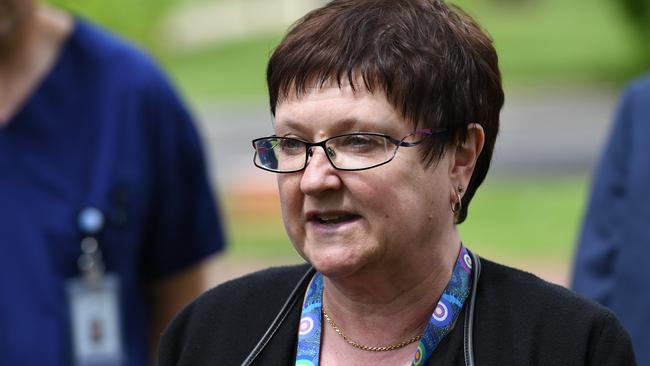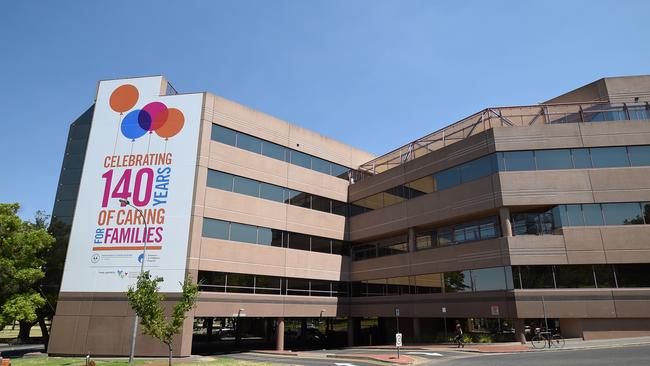Now it’s the WCH neonatal ICU in strife as well as paediatric ICU
The hospital’s boss says she wants to reassure the community it is in safe hands, as The Advertiser reveals another section of the hospital has big problems.
SA News
Don't miss out on the headlines from SA News. Followed categories will be added to My News.
In a further blow to the beleaguered Women’s and Children’s Hospital’s reputation, its Neonatal Intensive Care Unit (NICU) has been put on probation as a training centre.
The downgrade was not made public but confirmed to The Advertiser following inquiries — as happened with the revelation the Paediatric Intensive Care Unit (PICU) has lost its teaching accreditation.
Women’s and Children’s Health Network (WCHN) chief executive Lindsey Gough told The Advertiser she wants to “reassure the community our clinicians continue to provide safe, high quality care for our patients.”
She said in August 2022 WCHN received “conditional accreditation” for its NICU following an online inspection by a committee from the Royal College of Physicians on December 20, 2021.
“WCHN has accepted recommendations from the College including improving the teaching and learning for neonatal peri-natal medicine trainees with a progress report to be provided by June 2023,” Ms Gough said.
“It is my commitment we will continue to work together with the College and our newly appointed Medical Head of Unit to Neonatology and NICU senior team to meet these recommendations.”

On Thursday, Ms Gough and members of the WCHN board said this week’s loss of accreditation for the PICU “took people by surprise.”
This is despite 215 WCH doctors signing a letter outlining major problems at the hospital which The Advertiser ran on the front page in February 2020, and 169 WCH doctors signing an open letter to The Advertiser in November 2020 pleading for more staff and equipment.
At the board’s annual public meeting, deputy chair Susy Daw started by noting there had been “media interest” in the PICU.
“I just want to reiterate our commitment to addressing the concerns raised in the accreditation letter,” she said.
“These are serious physical environment and staffing recommendations, they must be funded and fixed.
“We must, must, must address these issues. The College has run out of patience with the physical site and we must address that.”
She conceded the board had known there were issues with the PICU “for some time” and management had been briefed “there were issues coming up” in the assessment by inspectors from the College for Intensive Care Medicine.
However, Ms Daw said the scathing letter refusing accreditation and outlining a litany of problems “seemed like it happened quite quickly with that final letter which took people by surprise.”
Ms Gough echoed the sentiment saying that on the day of the assessment in October “there was no indication accreditation was going to be affected.”

People at the meeting raised questions about the effect of the loss of accreditation on the hospital’s reputation which board members acknowledged they were “well aware of”.
Others raised concern about the potential for harm to child patients from shortcomings, while one clinician complained about the lack of expert medical opinions in management decisions.
“The medical voice is struggling to move from the coalface where we are aware of urgent problems up to the executive level,” the doctor told the assembled board.
Ms Daw said management is working on an action plan to deal with the PICU situation, while noting there are ongoing issues of staff shortages and the “fatigue factor.”
Executives now have a “spreadsheet” of all other units run by the WCHN in a bid to ensure they maintain their standards in order to retain their accreditation as teaching units.




